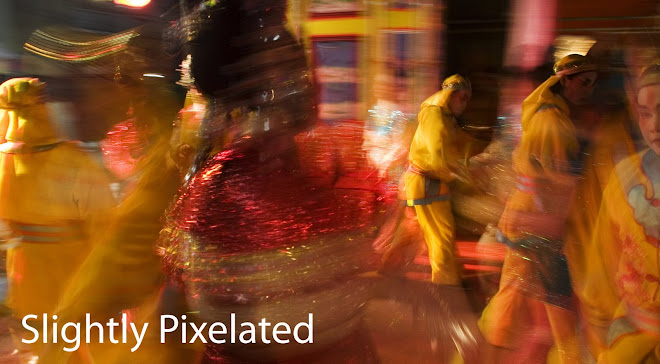
Anti government protesters of the People's Alliance for Democracy (PAD) have now succeeded in shutting down Suvarnabhumi international airport, cutting the nation's principal transportation link to the rest of the world.
PAD protesters are preventing Ministers and Senators from attending meetings in Parliament and the government's temporary offices at Don Muang Airport to the north of the city are surrounded by yellow-clad supporters of the PAD.
Meanwhile thousands of PAD sympathisers continue to occupy the grounds of Government House. Sporadic clashes between rival political groups are taking place throughout the capital, Bangkok.
Faced by this situation the police, cowed by criticism of their violent response to protests outside parliament on October 7th, which resulted in several deaths and hundreds of injuries, have chosen to stand by and allow the PAD to pursue a strategy aimed at creating a situation where Thailand is ungovernable.
Under the magnifying glass of the media, which delivers images crammed with PAD protesters clad in yellow, it looks as though we are witnessing a popular revolution against an impotent and unpopular regime.
Yet the demographics of Thailand's political conflict actually favour the incumbents.
Few doubt that if the government were to be dissolved and new elections held, the People's Power Party (PPP), or any other anointed representative of ousted Premier Thaksin Shinawatra, would likely be returned to power.
On the surface, the PAD is a movement driven by a profound disillusionment with the state of Thai politics which, as society and the economy have modernised, have remained ossified in a state of 'Third World' corruption.
The PAD's support base is an unlikely alliance of hard-line conservatives, liberal intellectuals and members of the urban middle class. Its leaders' incessant tirades against the corruption of the political elite and its goal of delivering what it calls 'New Politics' (of which more below) resonates profoundly among these groups, who are hungry for an upgrade of the political system.
Among those who support the government there is, paradoxically, a deep felt resentment that the PAD is actually seeking to roll back Thailand's political development. That the PAD represents the forces of old rather than new politics.
Many of those who voted for Thaksin, of whom most live in rural areas particularly in the North and North East, see Thaksin and his PPP as their best chance for flexing their democratic muscle.
Exploiting the rural bias of Thailand's political demographics, Thaksin and the PPP have played the populist card, offering a policy platform tailored to the interests of the rural majority who have faithfully returned their champions to power.
Like the PAD, Thaksin built his support on a platform that promised political renewal. The slogan of his now-banned Thai Rak Thai, the vehicle which he rode to an electoral landslide in 2001, was Kit Mai Tham Mai which means New Thinking, New Methods.
Beneath the surface of these powerful political currents, however, is the reality that Thailand's traditional political establishment faces the challenge of a traumatic succession when the much-loved and revered King Bhumipol Adulydej, 81 and in poor health, passes from the scene.
The King has served as an ultimate incarnation of legitimate authority in Thailand and has, through his judicious intervention in times of crisis, been able to contain most destructive forces within Thai politics.
Aware of the impending vacuum and of the huge stakes at a national level, conflicting poles of power have already begun competing and it is their struggle that is today being played out on the streets of Bangkok by equally disillusioned segments of the population.
The PAD, which relies heavily on royal symbolism (yellow is the colour of the King) is seen as the political expression of the traditional conservative elite. The PAD's New Politics proposal outlines a political system which would do away with the current one man one vote democracy replacing it with a model that would see only 30% of government representative elected through popular suffrage. The remaining 70% would be appointees.
The pro-government movement, whose supporters wear red, is seen as an expression of the populist democratic energy unleashed by Thaksin.
Thaksin Shinawatra's 'success' in political terms was to have opened the pandora's box which is the dislocation between the interests of the rural majority, who were largely passed by during Thailand's boom years, and those of the growing urban middle class who benefitted massively from the nation's 'miracle' economic growth. It is ironic, and represents a cynical triumph of political marketing, that one of the nation's wealthiest tycoons should become a hero for the poor.
As Thailand's political opponents square off, as the nation's economy and government slide into paralysis, there is no obvious solution to the current impasse.
For while each interest group possesses powerful leadership there appears to be no unifying figure, beyond that of the King, that can offer the Thai people a vision of what could lie beyond this crisis.
The reality is that for a nation to be able to move into the future it must first of all have a clear vision of what that future might consist of. Until a leader emerges from the fog of Thailand's political turmoil, Thailand's future looks bleak indeed.

1 comment:
well explained, could not have done it better myself.
Post a Comment